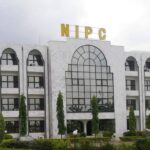Ms. Yewande Sadiku is the Executive Secretary of the Nigeria Investment Promotion Commission (NIPC). In this interview, she speaks on key issues that have defined her five-year stewardship at NIPC.
Your first tenure in NIPC comes to an end this month, how has the journey been?
One of my proudest achievements is that all of the work we have done in NIPC over the last five years was done with the same staff of NIPC that I met when I assumed office because I did not employ anybody in my tenure and I did not appoint any external special assistant. The people who work closest to me are the people I met in NIPC. There is some negative stuff in the press about NIPC because of internal conflicts. But I came here believing that it doesn’t matter.
- We must avoid politics in setting up public universities
- NIPC generated N11.9bn, remitted N5.8bn to federation coffers in 5 years — Sadiku
These conflicts existed long before I joined. In fact, it’s a wonder that I have stayed this long given what happened to two of my predecessors. But the fact that I found good people in NIPC and I have been able to work with them is comforting to me.
So, one of my proudest achievements is that all of the work that we have done, a lot of it NIPC was not doing before I came. I’m very proud of the elevation in NIPC’s reputation in the context of governance, compliance, and transparency. When I joined NIPC, I think we ranked 96 in the independent compliance ranking done by the civil society. We were ranked second in 2019, we were ranked second in 2020, and I don’t know what we would be ranked in 2021. But to use the same group of people to do that is record-breaking for me.
If you go to NIPC’s website, look at the section on FOI. I dare you to find another government agency with that level of disclosure, and we update it on a quarterly basis. The reports were last updated in June. I expect they will be updated at the end of September.
In terms of being able to advise the government on the directional flow of investors’ interest in Nigeria, it is also something that NIPC can now do on a data-supported basis, not anecdotes.
How was the agency’s revenue generation in the last five years?
In the context of remittances to the government, we published a report recently that indicated that over the last five and a half years, NIPC generated N11.9 billion in Internally Generated Revenue (IGR) and we’ve remitted N5.8bn to the government. If you add up the five years before I joined NIPC, I don’t think up to N1bn was remitted to the government.
When I arrived in November 2016, NIPC did not have an audited account for 2014. We completed 2014 and 2015 before we could do 2016, which was the year I joined. The audited account for 2020 has been done and published. We have no overdue audited account.
The staff union embarked on industrial actions over welfare, has that been addressed?
If you judge by some of the agitations that you’ve seen from the staff union, you will assume that welfare in NIPC is very poor. The improvements in welfare in NIPC since I joined, in my view, are almost unprecedented in any government agency. Because we made more income than NIPC has ever done in 2018, we got the governing council to approve a staff housing loan scheme to help staff acquire their own homes.
When I joined NIPC, what they had in place was a N200 million housing scheme that was not funded. So it was approved for N200m, but there was no money behind it. We set aside N1.2bn for NIPC staff. Out of that N1.2 billion, N1.1bn has been disbursed already to staff. We set aside N500m for a post-service benefit scheme, to give them something to cushion that transition from work to no work.
What have been your challenges in NIPC?
NIPC has a history of industrial unrest. That challenge was something I had to deal with throughout my tenure. You cannot do this work without the support of all the elements of government – federal, state, and also executive, legislature, and judiciary. A relatively challenging economic backdrop is a difficult context in which to work and generate investment. So it would have been good to have many records of this investment.
For me, the record of that is not shining as I would’ve liked. But it is against the difficulty of the backdrop with which we worked. And again, there were challenges with the governing council because there were court cases instituted. These are statements of fact. There were court cases instituted by a member of the governing council that slowed NIPC down; including stopping NIPC from spending its IGR for five months in 2020. And trying to get an organisation like this, especially with the history of industrial relations, on a path of reform – reform is normally difficult – has been challenging. I am the second executive secretary to spend more than three years in NIPC. I’ll be the only second executive secretary to complete a tenure. NIPC started in 1997. That tells you something.
What will ensure lasting industrial harmony at NIPC?
Discipline is a big part of it. For every organisation, employees and employers have their rights and obligations, but your CEO, your management have certain prerogatives for them to be able to manage the organisation and lead it as they deem fit. There are certain privileges that come with that position. If you don’t respect the fact that the person has those privileges, there will always be conflict.

 Join Daily Trust WhatsApp Community For Quick Access To News and Happenings Around You.
Join Daily Trust WhatsApp Community For Quick Access To News and Happenings Around You.


